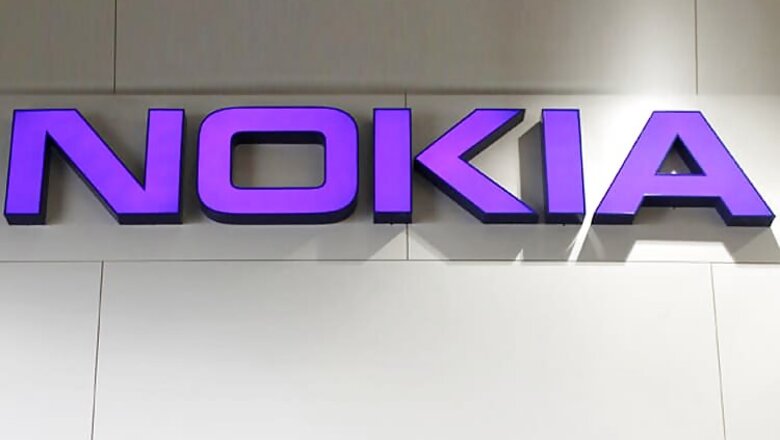
views
Helsinki: When US software giant Microsoft bought Nokia's struggling mobile phone business last year, the inhabitants of Salo – a town of 54,000 in southern Finland – thought the move would revive the local economy.
But their hopes were crushed last week when Microsoft announced it would close Nokia's former product development unit in the town, putting all 1,100 jobs at risk. Last year the US company had said it could hire more staff in Salo.
The decline of Finland's electronics industry as Nokia lost competitiveness against peers Apple and Samsung, along with falling global demand for paper products and EU sanctions on neighbouring Russia, have entrenched the Scandinavian country in a three-year recession.
Towns like Salo, home to one of Nokia's first factories set up in the 1970s, have been particularly hard hit.
Prime Minister Juha Sipila called Microsoft's decision last week "a big blow," and visited Salo on Monday to hear from locals how the government could best help the town.
A former engineer and telecoms executive, Sipila was elected in April on a promise to balance Finland's budget, cut bureaucracy and lower taxes for small companies.
He has advocated the role of entrepreneurship in getting Finland back on track, but that may be a tough transition for an economy that became so dependent on Nokia.
Ten years ago, Nokia’s operations in Salo employed 5,000 people and even in 2008, over a fifth of all jobs in the area were within information technology.
Today Salo's unemployment rate stands at 15 percent, well above the national rate of 9.7 per cent, following the closure of a Nokia factory in 2012 and previous Microsoft layoffs. Closing the product development unit could push it up to 20 per cent.
High unemployment and the angst among Finns about where their country is headed is reflected in the rising popularity of the eurosceptic Finns Party, now a coalition partner, and in Finland's recent tough stance in euro zone negotiations on bailout funds for Greece.
Finnish politicians expressed their solidarity with Salo on social media.
"My staff and I have been closely following the death curve," said Salo's mayor Antti Rantakokko, referring to the decline in recent years of Windows' share of the global smart phone market to just 2-3 per cent.
He said some technology companies had been in contact with him about investing in Salo, but would not elaborate.
Microsoft, in an emailed statement to Reuters, said that, under its new strategy, the company would cut the range of smart phones it sells and so would not need three development sites in Finland.
Two Finnish sites, in Espoo and Tampere, will remain open, but of its 3,200 employees in Finland, only 900 may survive after negotiations between Microsoft and Finnish employees, expected to start later this month.
"We were of the impression that Microsoft would give its phone business a bit longer to see if it can grow," said Aimo Leskela, a trade union shop steward and 30-year veteran at Nokia.
Mika Paukkeri, another shop steward, said he hoped Microsoft would cut its staff in Salo, not shut it down altogether.
Sipila said Finland would apply for aid from the European Globalisation Adjustment Fund, which supports people who have lost their jobs following major structural changes.
Manufacturing of mobile phone handsets shifted from Salo to Asia in 2012.
Shopping for fabrics in a local store this week, Maria Gustafsson said of the 20 years she has spent in Salo, "it has never felt so bad living here. First Nokia closes the factory, now this."
Marjo-Riitta Maattanen and Heidi Kirjavainen have just opened a store in Salo's main shopping street for fabrics and clothing they usually sell online.
"How ironic that we opened the shop just this week. Bad timing," Maattanen said.
Finland's coalition government expects the economy to pick up this year but cut its 2015 growth forecast last month to just 0.3 per cent. In contrast, neighbouring Sweden is looking at 2.4 per cent growth.
The Finnish government is imposing tough austerity measures after rising public debt and budget deficits under the previous administration prompted a warning from the European Commission.
In Salo, corporate income tax revenues have slumped from 60 million euros in 2010 to just 10 million last year, hitting municipal services such as schools and healthcare centres.
Sipila's calls for the jobless to set up their own businesses are greeted with scepticism.
"Not everybody can be an entrepreneur," said Kirjavainen.
Instead, locals hope bigger businesses will take advantage of IT know-how in Salo.
Many are even still counting on Nokia, which said this week that it may start designing and licensing mobile phone handsets under its brand name in 2016.
It has not mentioned Salo as a possible site but it has raised hopes.
"Nokia's return to Salo would be ideal," shop steward Leskela said. "We could just change back the signs on the door," Paukkeri added.



















Comments
0 comment